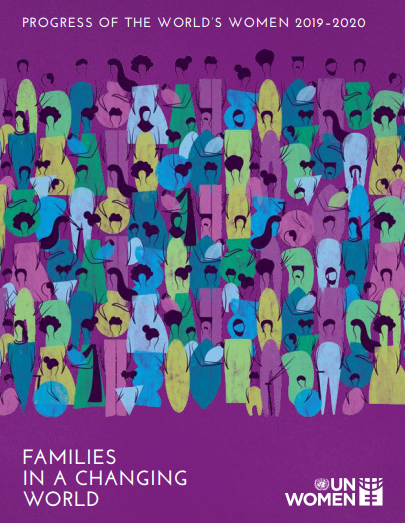
Launch of “Progress of the World’s Women 2019: Families in a Changing World” in Georgia

Event description
Families are diverse and evolving. There is not any “standard” or “universal” form of a family. Based on research, evidence, innovative approaches and case studies, the 2019-2020 edition of UN Women's flagship report "Progress of the world's women" takes a close look at families in a changing world. Globally, a little more than one third of households are couples living with children; extended families are almost as common; lone-parent families, the vast majority of which are led by women, account for 8 per cent of households; and in some countries, and in all regions, same-sex families are increasingly visible.
Families are places of care but can also bring conflict, inequality and violence. Today, 3 billion women and girls live in countries where rape within marriage is not explicitly criminalized; in one out of five countries, girls do not have the same inheritance rights as boys; in 19 countries, women are required by law to obey their husbands; and around one third of married women in developing countries report having little or no say over their own health care.
Women continue to enter the labour market in large numbers, but marriage and motherhood reduce their labour-force participation rates, as well as the income and benefits that come with it. Globally, just over half of married women aged 25-54 are in the labour force, compared to two thirds of single women and 96 per cent of married men, according to new data in the report. A major driver of these inequalities is the fact that women continue to do three times as much unpaid care and domestic work as men in the absence of affordable care services.
While the progress report proposes a comprehensive agenda informing policymaking, the event will focus on identifying the resources that a country would need to invest or reallocate in order to realize family-friendly services. In addition to presenting the findings at the global and regional level, the launch event will also zoom in on the findings for Georgia, which can feed into discussions on the introduction of family-friendly policies in the country. This issue is one of the most discussed topics in the context of ongoing reforms in Georgia related to the implementation of the Georgia/EU Association Agreement as well as the 2030 Agenda and the achievement of the Sustainable Development Goals.